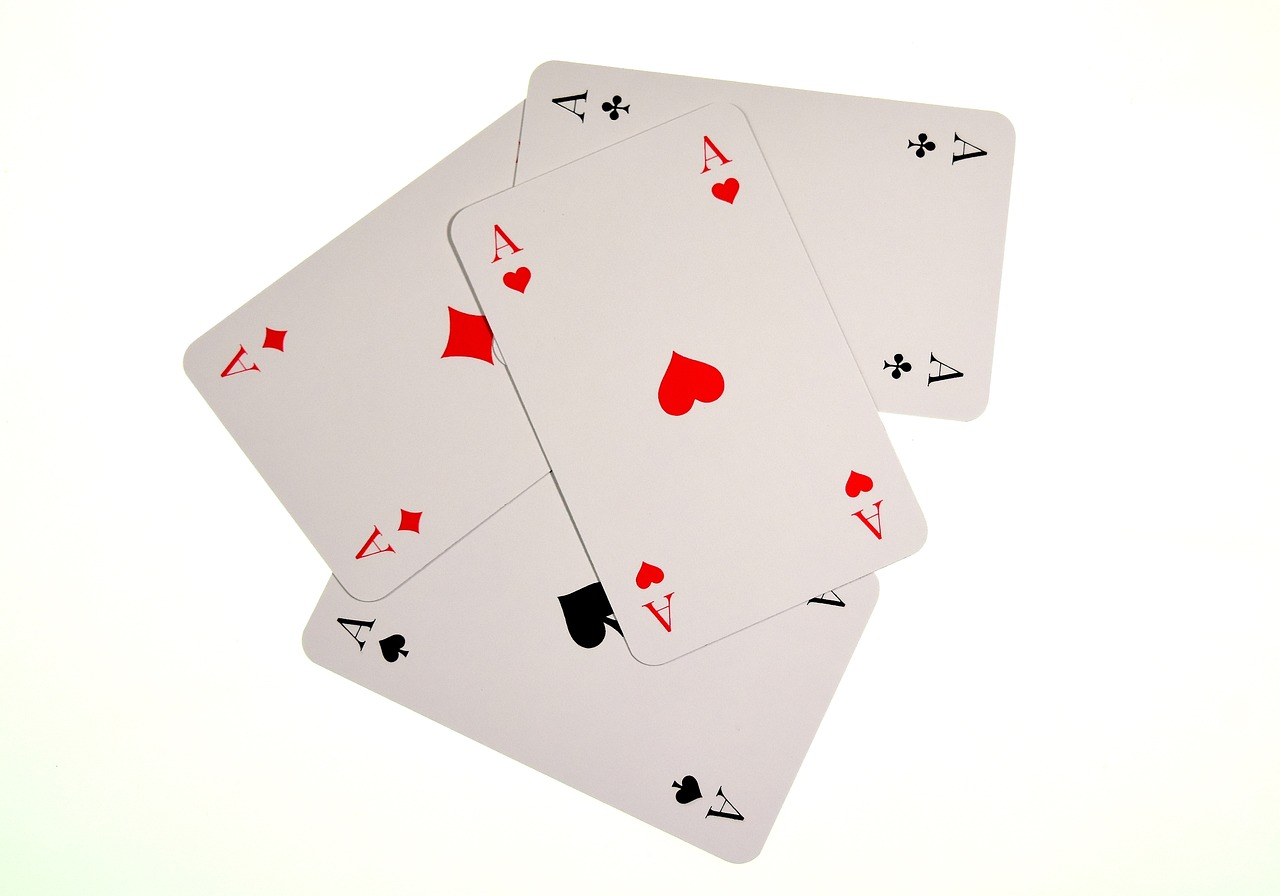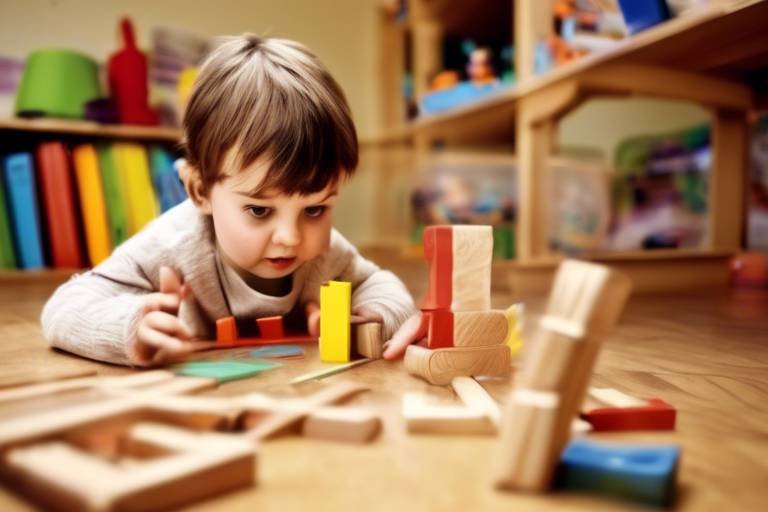Understanding the Benefits of Mind Games for Pets
Have you ever watched your pet stare blankly into space, seemingly lost in their own world? It’s a common sight, but what if I told you that engaging them in mind games can transform those moments of boredom into exciting opportunities for growth and connection? Mind games aren’t just fun; they’re a vital part of your pet’s overall well-being. In this article, we’ll dive deep into the many benefits of mind games for pets, from enhancing their cognitive skills to reducing anxiety and strengthening the bond between you and your furry friend.
Just like humans, pets need mental stimulation to thrive. Engaging in mind games can significantly boost your pet's cognitive abilities. Think of it as a workout for their brain! When pets face mental challenges, they learn to solve problems and adapt to new situations. This not only promotes brain health but also enhances their agility and responsiveness. Imagine your dog figuring out how to open a puzzle toy – it's a proud moment for both of you! Studies have shown that pets who engage in regular mental exercises tend to be more alert and responsive, making them easier to train and handle.
Boredom can lead to destructive behaviors in pets, such as chewing on furniture or excessive barking. Mind games can help alleviate this boredom and reduce anxiety levels. When pets are mentally stimulated, they’re less likely to engage in those unwanted behaviors. Think of it as providing them with a mental vacation! Activities like hide-and-seek or interactive toys can keep them occupied for hours, allowing them to feel more relaxed and content in their environment. Happy pets are well-behaved pets!
Now that we know the benefits, let’s explore the various types of mind games you can introduce to your pets. The options are endless, ranging from puzzle toys to interactive training sessions. Here are a couple of popular choices:
- Puzzle Toys: These are designed to challenge your pet and keep them engaged.
- Training Exercises: Simple commands and tricks can serve as effective mind games while reinforcing good behavior.
Puzzle toys are a fantastic way to keep your pets mentally stimulated. They come in various designs, from treat-dispensing balls to complex multi-chambered puzzles. These toys encourage pets to think critically and use their problem-solving skills to access the rewards inside. Popular options include the KONG Classic and the Outward Hound Hide-A-Squirrel. Not only do these toys keep your pets occupied, but they also promote healthy chewing habits and can even help with dental health!
Training exercises can also double as mind games for your pets. Simple commands like “sit,” “stay,” or even fun tricks like “roll over” can stimulate their minds while reinforcing good behavior. Incorporating training sessions into your daily routine not only helps your pet learn but also strengthens your bond. Plus, who doesn’t love showing off a well-trained pet? Make training fun by using treats as rewards, and soon your pet will be eagerly anticipating their next mental challenge.
Mind games can be particularly effective in addressing common behavioral problems in pets. Many pets exhibit undesirable behaviors, such as excessive barking or chewing, often due to boredom or lack of stimulation. By introducing engaging mental activities, you can redirect their energy positively. For instance, if your dog tends to chew on furniture, try offering them a puzzle toy instead. This not only keeps them occupied but also teaches them what is appropriate to chew on.
Participating in mind games together can deepen the connection between you and your pet. Shared activities foster a sense of trust and understanding, making your relationship even more special. Imagine the joy of watching your pet successfully complete a challenging puzzle or learn a new trick – it’s a bonding experience like no other!
Interactive playtime is crucial for building trust and understanding between pets and their owners. Engaging in mind games not only enhances communication but also encourages cooperation. When you play together, your pet learns to rely on you for guidance, strengthening your bond. So, grab a toy and get ready for some quality time with your furry friend!
Establishing a routine that includes mind games can provide much-needed structure for your pets. Consistency is key in maintaining a pet's mental well-being. By incorporating these activities into your daily schedule, you help your pet know what to expect, reducing anxiety and promoting a sense of security. Whether it’s a morning puzzle session or an evening training exercise, these routines can make a significant difference in your pet’s happiness.
Q: What are some easy mind games I can start with?
A: Simple games like hide-and-seek, basic training commands, or using treat-dispensing toys are great starting points!
Q: How often should I engage my pet in mind games?
A: Aim for at least 15-30 minutes of mental stimulation each day, depending on your pet's energy levels and needs.
Q: Can mind games help with my pet's anxiety?
A: Absolutely! Engaging in stimulating activities can help alleviate anxiety and provide a sense of calm.

Enhancing Cognitive Skills
When it comes to our furry companions, we often think about their physical health, but what about their mental well-being? Engaging your pets in mind games is a fantastic way to enhance their cognitive skills. Just like us, pets need mental stimulation to keep their brains sharp and agile. Imagine a dog or cat solving a puzzle; it’s like watching a little light bulb go off in their heads! This mental exercise can lead to improved problem-solving abilities and a greater capacity to learn new commands and tricks.
Mind games can be compared to a workout for your pet's brain. Just as humans benefit from puzzles and challenges, pets thrive on tasks that require them to think critically. These activities can range from simple hide-and-seek games to more complex puzzle toys that require them to figure out how to retrieve a treat. The beauty of these challenges is that they not only entertain but also promote brain health, similar to how physical exercise benefits their bodies.
Studies have shown that mental challenges can help slow cognitive decline in pets, particularly in older animals. As pets age, they can experience a decrease in cognitive function, much like humans do. By regularly engaging in mind games, you can help keep your pet's mind sharp and their spirits high. Think of it as a way to invest in their future. It’s a win-win situation: your pet stays mentally fit, and you get to enjoy their playful antics!
Moreover, the process of learning new skills through mind games can significantly enhance your pet's ability to adapt to new environments and situations. This adaptability is key for their overall well-being. For instance, a dog that has been trained to solve puzzles is likely to handle changes in their routine or environment with greater ease than one who hasn't had these experiences. It’s like giving them a mental toolbox to navigate life’s challenges.
In summary, enhancing your pet's cognitive skills through mind games is not just about keeping them entertained; it's about ensuring they lead a fulfilling and healthy life. By incorporating these activities into your pet's daily routine, you’re not only enriching their lives but also fostering a deeper connection between the two of you. So, why not grab a puzzle toy or set up a little training session today? Your pet will thank you for it!

Reducing Boredom and Anxiety
Have you ever noticed your furry friend pacing around the house or getting into trouble when they're left alone? It's a common scenario for many pet owners. Just like us, pets can experience feelings of boredom and anxiety. When pets don’t have enough mental stimulation, they can become restless, leading to unwanted behaviors such as chewing, barking, or even digging. Engaging them in mind games is a fantastic way to combat these issues, providing them with the mental exercise they need to stay happy and healthy.
Think of mind games as a workout for your pet's brain. When you engage your pet in these stimulating activities, you’re not just keeping them entertained; you’re also helping them to feel more relaxed and content. By focusing their energy on solving puzzles or learning new tricks, they are less likely to dwell on their surroundings or feel anxious about being alone. This shift in focus can be transformative, turning a restless pet into a calm companion.
Moreover, the psychological benefits of mind games extend beyond just reducing boredom. When pets are actively engaged, their stress levels decrease significantly. This is particularly important for pets that may struggle with separation anxiety. For instance, if you leave your dog at home while you run errands, providing them with a challenging puzzle toy can keep them occupied, allowing them to channel their energy into something productive rather than worrying about your absence.
Here’s a quick overview of how mind games can help reduce boredom and anxiety:
- Increased Focus: Mind games require pets to concentrate, which diverts their attention from stressors in their environment.
- Physical Activity: Many mind games also involve movement, helping pets burn off excess energy.
- Improved Mood: Successfully completing a puzzle or trick can boost a pet's confidence and overall mood.
It’s also worth noting that creating a routine that incorporates these mind games can further enhance their effectiveness. Just like humans, pets thrive on consistency. Setting aside time each day for mental challenges can help your pet know what to expect, reducing anxiety and making them feel secure in their environment.
In conclusion, engaging your pet in mind games is not just a fun activity; it’s a vital part of their mental and emotional well-being. By reducing boredom and anxiety through stimulating activities, you’re helping your furry friend lead a happier, healthier life. So why not grab a puzzle toy or set aside some time for a training session? Your pet will thank you with wagging tails and happy purrs!
- How often should I engage my pet in mind games? It's ideal to incorporate mind games into your pet's daily routine, aiming for at least 15-30 minutes of mental stimulation each day.
- What types of mind games are best for my pet? The best mind games vary by pet type. Puzzle toys, scent games, and training exercises are excellent options for both dogs and cats.
- Can mind games help with my pet's behavioral issues? Yes! Engaging in mind games can significantly reduce common behavioral problems by providing an outlet for excess energy and mental stimulation.
Types of Mind Games
When it comes to engaging our furry companions, there’s a whole world of mind games to explore! These activities not only entertain pets but also challenge their brains, keeping them sharp and alert. Think of mind games as a workout for your pet's mind; just like humans benefit from mental exercises, so do our four-legged friends. So, what are some of the types of mind games available? Let’s dive in!
One of the most popular options are puzzle toys. These ingenious gadgets are designed to stimulate a pet's problem-solving skills. Imagine a dog trying to figure out how to get a treat out of a complicated contraption. It’s like a mini-escape room for them! Puzzle toys come in various shapes, sizes, and difficulty levels, catering to pets of all ages and skills. Some are simple enough for a curious kitten, while others are challenging enough to keep a clever border collie engaged for hours.
Another fantastic type of mind game is training exercises. Training isn’t just about teaching commands; it’s a great way to bond with your pet while keeping their minds active. Whether it’s teaching your dog to roll over or your cat to high-five, training sessions can be both fun and mentally stimulating. You can even incorporate tricks that require your pet to think critically, like hiding treats around the house and encouraging them to find them. This not only engages their brain but also reinforces good behavior, making it a win-win for everyone!
For those who enjoy a bit of creativity, consider interactive games that involve both you and your pet. These can range from simple fetch games that require your pet to strategize on how to catch the toy, to more complex hide-and-seek games where they have to use their noses and brains to track you down. The beauty of interactive games is that they foster a deeper connection between you and your pet, turning playtime into a bonding experience.
To give you a clearer picture, here’s a quick table summarizing the different types of mind games available:
| Type of Mind Game | Description | Benefits |
|---|---|---|
| Puzzle Toys | Interactive toys that require pets to solve problems to access treats. | Enhances problem-solving skills and keeps pets entertained. |
| Training Exercises | Sessions focused on teaching commands and tricks. | Strengthens obedience and reinforces positive behavior. |
| Interactive Games | Games that involve both the pet and owner, like fetch or hide-and-seek. | Deepens the bond between pet and owner while providing mental stimulation. |
In conclusion, the variety of mind games available for pets is vast and exciting. Whether you choose puzzle toys, engage in training exercises, or partake in interactive games, each option offers unique advantages that contribute to your pet’s overall well-being. So why not mix things up and keep your furry friend’s mind sharp and engaged?
Puzzle Toys
Puzzle toys are not just fun gadgets; they are a fantastic way to keep your pet's mind sharp and engaged. These toys challenge pets to think critically and develop problem-solving skills, much like humans do when faced with a tricky puzzle. Imagine your pet, with their tail wagging in excitement, trying to figure out how to get that tasty treat hidden inside a complex contraption. It’s a sight that not only entertains but also stimulates their brain. Just like us, pets need mental exercise to stay healthy and happy!
There are various types of puzzle toys available on the market, each designed to cater to different skill levels and preferences. For instance, some toys require pets to push, pull, or slide pieces to reveal treats, while others may involve flipping or lifting compartments. This variety ensures that there’s something for every pet, regardless of their age or activity level. Engaging with these toys can help prevent boredom, which is a common issue that leads to destructive behaviors. By providing your pet with a puzzle toy, you're not just giving them entertainment; you're also preventing potential problems down the line.
Here are a few popular types of puzzle toys that you might consider:
- Interactive Feeders: These toys require pets to work for their food, turning mealtime into a fun challenge.
- Treat Dispensing Toys: Pets must figure out how to release treats by rolling or manipulating the toy.
- Hide-and-Seek Toys: These toys often come with smaller toys that your pet must find and retrieve from a larger toy.
Incorporating puzzle toys into your pet's daily routine can lead to numerous benefits. Not only do they provide mental stimulation, but they also encourage physical activity as pets move around trying to solve the puzzles. Furthermore, these toys can be a great way to bond with your pet. You can sit together and cheer them on as they tackle the challenges, creating a shared experience that strengthens your relationship. So, why not grab a puzzle toy today and watch your pet's cognitive skills soar?
Training Exercises
When it comes to keeping our furry friends engaged, are a fantastic way to blend fun with functionality. Imagine your pet not only learning commands but also using their brain to solve puzzles and follow your lead. It's like a workout for their minds! Training exercises can range from simple commands like "sit" and "stay" to more complex tricks that challenge their cognitive abilities. Not only do these activities stimulate their brains, but they also help reinforce good behavior, making your pet a well-mannered companion.
One of the most effective training exercises is the classic clicker training. This method involves using a small device that makes a clicking sound to mark desired behaviors. When your pet performs a trick correctly, you click and then reward them with a treat. This positive reinforcement helps them associate the sound with a job well done, encouraging them to repeat the behavior. It’s a win-win situation! Your pet gets a tasty treat, and you get a more obedient companion.
Another engaging training exercise is the hide and seek game. This not only sharpens their problem-solving skills but also taps into their natural instincts. You can start by having your pet stay in one room while you hide in another. Once you're hidden, call them to come find you. The excitement of the chase and the reward of finding you can be incredibly stimulating for them. Plus, it strengthens the bond you share as they learn to trust your commands and enjoy the thrill of the hunt.
Moreover, you can incorporate obstacle courses into your training routine. Set up a mini course in your backyard or living room using household items like chairs, boxes, and tunnels. Guide your pet through the course with treats or toys, encouraging them to navigate the obstacles. This not only provides physical exercise but also promotes mental agility as they learn to think critically about how to overcome each challenge. It’s like a fun puzzle that keeps them engaged and active!
To maximize the benefits of these training exercises, consistency is key. Establishing a routine where you dedicate time each day to training can significantly enhance your pet's learning experience. Aim for short, frequent sessions rather than long, drawn-out ones to keep their attention focused. Remember, patience is essential; some pets may take longer to grasp new concepts than others. Celebrate small victories along the way, and you’ll find that both you and your pet will enjoy the journey of learning together.
In conclusion, incorporating training exercises into your pet's daily routine not only boosts their cognitive skills but also strengthens the bond you share. So, grab those treats, get your clicker, and start turning training into a fun game that both you and your pet will love!
- What are some easy training exercises for beginners?
Start with simple commands like "sit," "stay," and "come." These foundational commands are crucial for building a strong training relationship. - How often should I train my pet?
Short, daily training sessions of 5-10 minutes are ideal. Consistency helps reinforce learning. - Can training exercises help with behavioral issues?
Absolutely! Training provides mental stimulation and can redirect negative behaviors into positive actions. - What if my pet doesn’t respond to training?
Be patient and adjust your approach. Sometimes, changing the rewards or the training environment can help.
Benefits for Behavioral Issues
Engaging pets in mind games can be a game changer when it comes to addressing common behavioral issues. You might have noticed that your furry friend sometimes exhibits undesirable behaviors, like excessive barking, chewing on furniture, or even digging up your prized garden. It's not just annoying; it can also be a sign that your pet is bored or anxious. When you introduce mind games into their routine, you're not just providing entertainment; you're offering a solution to these behavioral problems.
Think of mind games as a mental workout for your pet. Just like humans, pets need to exercise their brains to stay happy and healthy. When pets engage in stimulating activities, it helps redirect their energy and focus. For instance, a dog that's busy figuring out how to get a treat from a puzzle toy is less likely to bark at every passerby or chew on your favorite shoes. This redirection is key to minimizing negative behaviors.
Moreover, mental challenges can help build a pet's confidence. When they successfully complete a task, it boosts their self-esteem and reinforces positive behaviors. This is particularly beneficial for pets that may be shy or anxious. When they learn that they can successfully navigate a puzzle or follow a command, they gain a sense of accomplishment. This newfound confidence can translate to improved behavior in other areas of their life.
Additionally, mind games can foster better communication between you and your pet. When you engage in these activities together, you're not just playing; you're creating a bond built on trust and understanding. This connection can reduce anxiety and fear, which are often the root causes of behavioral issues. Pets that feel secure in their relationship with their owners are less likely to exhibit problematic behaviors.
To give you a clearer picture, here are some common behavioral issues and how mind games can help:
| Behavioral Issue | Mind Game Solution |
|---|---|
| Excessive Barking | Puzzle toys to keep them engaged |
| Destructive Chewing | Interactive training sessions |
| Digging | Hide-and-seek games with toys |
| Anxiety | Routine problem-solving activities |
In summary, mind games are not just fun; they are essential tools for improving your pet's behavior. By keeping their minds active, you can help mitigate issues that arise from boredom or anxiety, leading to a happier, healthier pet. So, next time you notice your furry friend acting out, consider introducing some engaging mind games into their daily routine. You might be surprised at how much of a difference it can make!
Q: What types of mind games are best for my pet?
A: The best mind games depend on your pet's preferences and abilities. Puzzle toys, scent games, and training exercises are great options to consider.
Q: How often should I engage my pet in mind games?
A: Aim for at least 15-30 minutes of mental stimulation each day, but feel free to mix it up with different activities throughout the week.
Q: Can mind games help with my pet's separation anxiety?
A: Yes! Engaging your pet in mind games before you leave can help tire them out mentally, reducing anxiety when you're not home.
Q: Are there specific games for different types of pets?
A: Absolutely! Dogs often enjoy puzzle toys and fetch games, while cats may prefer interactive toys that stimulate their hunting instincts.

Strengthening the Human-Pet Bond
When it comes to our furry friends, the bond we share with them is often one of the most rewarding aspects of pet ownership. Engaging in mind games together is a fantastic way to deepen this connection. Think of it as a dance; the more you practice together, the more in sync you become. By participating in these activities, not only are you providing your pet with mental stimulation, but you are also building trust and enhancing your communication.
Imagine spending quality time with your pet, where both of you are fully engaged and enjoying each other's company. Mind games encourage this interaction, allowing pets to see their owners as partners in fun and learning. This shared experience fosters a sense of teamwork and cooperation, which is essential for a strong relationship. Just like humans, pets thrive on attention and affection, and what better way to show love than through interactive play?
Moreover, establishing a routine that incorporates mind games can significantly improve your pet's overall well-being. Consistency is key; when pets know what to expect, they feel more secure and relaxed. A structured routine provides them with a sense of purpose, much like how we feel accomplished when we check items off our to-do list. It’s a win-win situation: you both benefit from the shared experiences, and your pet enjoys a more stable environment.
To illustrate the importance of these interactions, consider the following table that highlights how mind games can strengthen the bond between pets and their owners:
| Activity | Benefit |
|---|---|
| Interactive Puzzle Toys | Encourages problem-solving and teamwork |
| Training Sessions | Enhances communication and reinforces good behavior |
| Outdoor Games | Builds trust and strengthens physical coordination |
In conclusion, the importance of mind games in strengthening the human-pet bond cannot be overstated. These activities not only provide mental stimulation for your pet but also create memorable moments that enhance your relationship. So, why not set aside some time each day to engage in these fun and rewarding games? Your pet will thank you for it, and you'll find that your bond grows stronger with each passing day.
- What are some easy mind games to start with? Simple activities like hide-and-seek or basic puzzle toys can be great starting points.
- How often should I engage my pet in mind games? Aim for at least 15-30 minutes a day, depending on your pet's energy level and interest.
- Can mind games help with behavioral issues? Absolutely! Engaging your pet mentally can reduce undesirable behaviors by keeping them occupied and focused.
Interactive Playtime
When it comes to bonding with your furry friend, is a game changer! Imagine this: you and your pet, engaged in a fun-filled session that not only entertains but also strengthens your relationship. It's like a dance where both partners are in sync, moving together in perfect harmony. But why is interactive playtime so essential? Well, it’s all about communication and trust. Just like humans, pets thrive on interaction. They need to feel that connection with their owners, and what better way to do that than through play?
During interactive playtime, pets are not just passive participants; they are actively engaged, using their minds and bodies to navigate challenges. This not only keeps them physically fit but also mentally stimulated. Think of it as a workout for their brains! When you throw a ball, hide a treat, or use a feather wand, you're not just playing; you're encouraging your pet to think critically and problem-solve. It's like giving them a mini workout for their mental agility.
Moreover, interactive playtime can help in developing essential skills. For instance, when you play fetch, your dog learns to retrieve and return, reinforcing obedience and enhancing their retrieval skills. Similarly, cats can benefit from interactive play through activities that mimic hunting, which satisfies their natural instincts. The key is to keep the activities varied and exciting. Here are some ideas to spice things up:
- Hide and Seek: Hide somewhere in your home and call your pet. Reward them when they find you!
- Treat Scavenger Hunt: Hide treats around the house and let your pet sniff them out.
- Obstacle Course: Set up a mini obstacle course using furniture and toys for your pet to navigate.
Each of these activities not only stimulates your pet's mind but also enhances your bond. The joy on their face when they solve a puzzle or find a hidden treat is priceless. Plus, engaging in regular interactive playtime can significantly reduce behavioral issues. Pets that are mentally and physically stimulated are less likely to engage in destructive behaviors like chewing furniture or excessive barking. It’s a win-win situation!
So, why not make interactive playtime a regular part of your routine? Set aside some time each day to engage with your pet. Not only will you see improvements in their behavior and mental agility, but you’ll also create lasting memories together. After all, the best part of having a pet is sharing those joyful moments and building a bond that lasts a lifetime!
Q: How often should I engage in interactive playtime with my pet?
A: Aim for at least 15-30 minutes of interactive playtime daily. Adjust based on your pet's energy levels and preferences.
Q: What types of toys are best for interactive play?
A: Toys that encourage problem-solving, like puzzle toys, and those that promote physical activity, such as balls and feather wands, are excellent choices.
Q: Can interactive playtime help with behavioral issues?
A: Absolutely! Regular mental and physical stimulation can reduce boredom and anxiety, leading to fewer behavioral problems.
Q: How can I tell if my pet is enjoying the interactive playtime?
A: Look for signs of excitement, such as wagging tails, playful barks, or purring. If they seem engaged and eager to participate, they're having a great time!
Creating a Routine
Establishing a routine that includes mind games is not just a great way to keep your pet entertained; it also provides much-needed structure to their day. Just like humans thrive on schedules, pets benefit from having a predictable routine that gives them a sense of security and comfort. Imagine waking up every day knowing exactly what to expect; that’s how pets feel when you incorporate regular activities into their lives. It’s like giving them a roadmap to navigate through their day!
When you create a routine, you can designate specific times for mind games, meals, walks, and playtime. This consistency helps to reinforce good behavior and reduces anxiety. For example, if your furry friend knows that every afternoon at 3 PM is puzzle toy time, they’ll eagerly anticipate it, leading to a more relaxed pet. Think of it as a little surprise they get to look forward to daily, which can significantly enhance their mood.
Moreover, incorporating mind games into a routine can help manage energy levels. High-energy pets, like Border Collies or Jack Russell Terriers, often require more mental and physical stimulation than others. By scheduling brain-teasing activities, you can help channel their energy in a positive way. You could even create a weekly schedule that looks something like this:
| Day | Activity | Time |
|---|---|---|
| Monday | Puzzle Toys | 3:00 PM |
| Tuesday | Training Exercises | 4:00 PM |
| Wednesday | Interactive Play | 5:00 PM |
| Thursday | Hide and Seek | 3:30 PM |
| Friday | Obstacle Course | 4:30 PM |
| Saturday | Fetch with a Twist | 10:00 AM |
| Sunday | Relaxation and Bonding Time | All Day |
As you can see, a structured routine can incorporate a variety of activities that cater to your pet’s mental stimulation needs. It’s essential to keep the activities diverse to prevent monotony. Just like humans, pets can get bored with the same old games. So, feel free to mix things up every now and then! This not only keeps your pet engaged but also strengthens your bond as you both explore new challenges together.
Additionally, routines help you as an owner, too. They can make it easier to manage your time and ensure that your pet is receiving the mental stimulation they need. Think of it as a win-win situation: your pet is happy, mentally stimulated, and well-behaved, while you enjoy the peace of mind that comes with knowing you’re providing them with a fulfilling life.
Frequently Asked Questions
- What are mind games for pets?
Mind games for pets are engaging activities designed to stimulate their cognitive skills. These can include puzzle toys, interactive training sessions, and various challenges that encourage pets to think and problem-solve. Just like humans, pets benefit greatly from mental exercises!
- How do mind games enhance a pet's cognitive skills?
Engaging in mind games can significantly boost a pet's brain health by promoting mental agility and encouraging them to learn new skills. It's similar to how we solve puzzles to keep our minds sharp. The more they practice, the better they get!
- Can mind games help reduce my pet's anxiety?
Absolutely! Mind games can alleviate boredom and anxiety in pets. When pets are mentally stimulated, they tend to feel more relaxed and content. It’s like giving them a fun job to do that keeps their minds busy and their spirits high.
- What types of mind games are best for my pet?
There are several types of mind games you can try! Puzzle toys are a fantastic option, as they challenge pets to figure out how to get treats. Training exercises can also serve as effective mind games, helping reinforce good behavior while keeping them engaged.
- How do puzzle toys benefit my pet?
Puzzle toys are specifically designed to keep pets occupied and mentally stimulated. They require pets to think critically and solve problems to access treats or toys hidden inside. This not only entertains them but also sharpens their cognitive abilities.
- Can mind games help with behavioral issues?
Yes, they can! Mind games can address common behavioral problems like excessive barking or chewing. By providing mental stimulation, pets are less likely to engage in undesirable behaviors, as they are focused on the fun challenges you've set for them!
- How can interactive playtime strengthen my bond with my pet?
Participating in mind games together creates a shared experience that enhances trust and understanding between you and your pet. It’s a wonderful way to communicate and cooperate, making your relationship more fulfilling and enjoyable.
- Is it important to create a routine that includes mind games?
Definitely! Establishing a routine that incorporates mind games provides structure for your pet. Consistency is key in maintaining their mental well-being, and it helps ensure they have regular opportunities for stimulation and engagement.



















